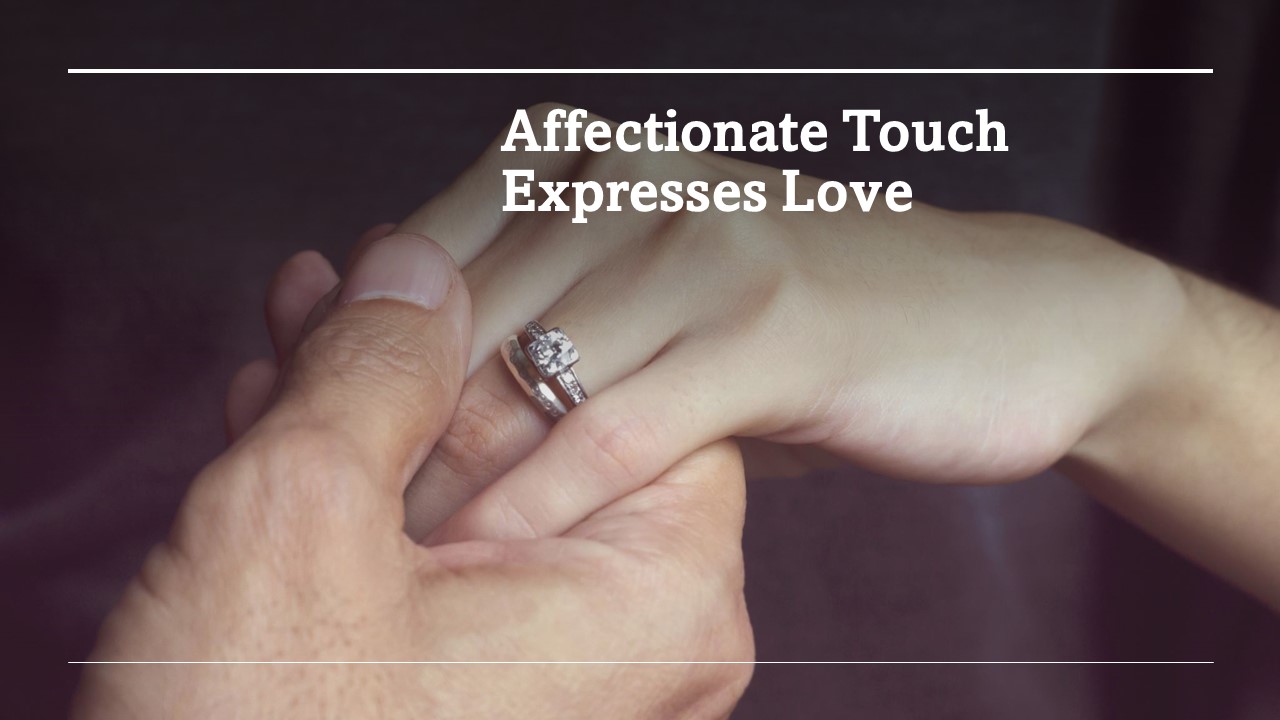Men and women use many verbal and nonverbal ways to express their love for a partner in a relationship. Affectionate touch of various kinds is among the major nonverbal channels to express romantic love that lovers use in their intimate relationships.
Agnieszka Sorokowska and her colleagues explain the role of affectionate touch in romantic relationships.
What Is Affectionate Touch?
In romantic relationships, touch is the most common means of expressing intimacy. Loving partners touch each other significantly more frequently than other individuals. Those in romantic relationships show significantly more intimate touch with each other than those who are single. Even imagining a partner’s touch can evoke pleasurable and erogenous feelings.
Romantic partners are typically permitted to touch many more parts of the body than strangers or acquaintances. For instance, most people feel comfortable when their partner touches them in the abdomen and thighs, but not when other people do so. Moreover, affectionate touch in partnerships is more diverse than in other social interactions. When directed towards a romantic partner, a stroke, for example, is performed with a particularly low velocity.
In line with this, a recent cross-cultural study revealed that, despite significant intercultural differences, affectionate touch behaviors such as an embrace, caress, kiss, and hug are universally present in partnerships across the globe.
Why Touch Deprivation Is Bad
The tendency to use affectionate touch in romantic relationships seems natural. The negative effects of touch deprivation stand in stark contrast to the many advantages of affectionate touch in close relationships.
Touch deprivation is associated with anxiety, depression, and somatization. On the other hand, the higher prevalence of partner touch leads to better psychological well-being. Furthermore, interpersonal touch contributes to a lowered stress response by lowering blood pressure, heart rate, and cortisol production. Touch can also reduce pain.
However, touching might not always be beneficial. Some people dislike touching. They may avoid touching others. Or have negative reactions to touching others. Such aspects of the relationship with a partner as low familiarity or a condition can make one feel a negative reaction to touch, such as disgust.
Why Affectionate Touch is Good in Close Relationships
Researchers use Affection Exchange Theory (AET) to interpret the significant implications and consequences of affectionate touch. According to this theory, affectionate communication is essential for “fostering the formation and maintenance of significant human pair bonds.” (Floyd, 2006, p. 165).
Expressions of affection are common among couples and related to the quality of romantic relationships. Men and women with higher levels of commitment in relationships usually physically display their affection toward their partners. The level of physical affection is also positively associated with relationship satisfaction and partner satisfaction while being negatively associated with attachment insecurity.
Affectionate communication typically includes multiple types of behaviors and verbal displays of affection. Men and women feel the desire for touch when their relationship quality is good.
Touch is strongly related to attachment patterns. When partners experience attachment avoidance, they are less likely to experience a desire for touch.
